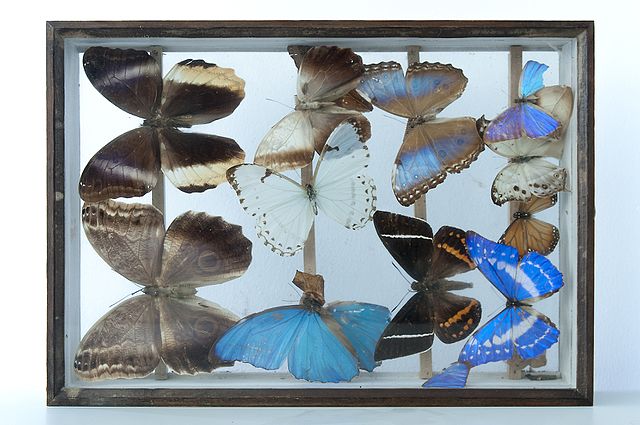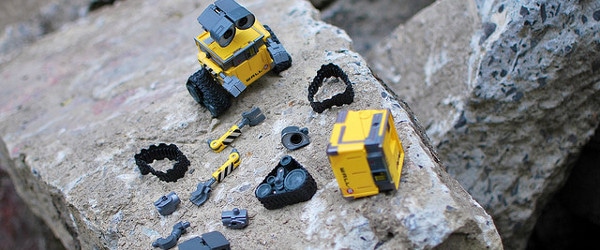“You think you know, but you don’t know and you never will, okay?” was the response an irate Jim Mora, head coach of the New Orleans Saints, gave to an unwitting journalist questioning his management – his point being that unless you’ve actually been in a professional sports team, you will never know what it’s like to coach at the top level.
The similarity isn’t too far away from life as a PhD student or postdoc. Unless you’ve experienced trying to get your own project off the ground, it’s quite hard to describe to your family and friends what science life is like. “Why don’t you do this? Why are you working so late? How will that help anyone? Why have you gained/lost so much weight?” are really frustrating questions to answer to someone who doesn’t know what scientists do.
It then got me thinking about other parallels between sport and science and wondered what it would be like if we took a “sporting” attitude to our lab work. Here are just a few suggestions how thinking of your research as a sport can help you work smarter and get the best out of yourself.
1. Science: Solo Sport or Team Game?
Are you a team player who wants to share out the responsibility of a project and success of prizes? Or are you a gung-ho solo athlete searching for individual rewards and greater recognition despite the higher pressured environment? Whichever way you prefer to approach science, it is inevitable that you will have to do both at some stage. So while it’s good to learn how to be independent and having the courage of your conviction with an idea, try not to get everyone’s back up! Even in individual sports, athletes are mentored by coaches and work with dieticians, physiotherapists, etc. so there’s no such thing as a truly solo achievement.
2. Figure Out Your Boss’s Coaching Style
Each lab head is different with a different emphasis lab life. Some bosses are like Pete Carroll, having a team mentality where everyone is geared towards the same goal (I’m sure people can relate to a lab ‘captain’, a seasoned and experienced postdoc with a fountain of knowledge, who sets the overall tone of the lab). Some bosses are more like legendary boxing coach Freddie Roach, where individual talents are grown and developed. It’s always good to have a chat with your boss about how they like their lab to work, so you both have a clear understanding of what’s expected. Despite your best efforts though, I’m afraid some bosses are just like Al Davies (just win, baby!).
3. Work on Your Tactics and Make a ‘Game Plan’
Just as a team will figure out any weaknesses of their opponent and work on their own shortcomings, it’s good to stop and spend time on potential flaws with your own project or on difficulties you are having in the lab. Are the tools you are using the right ones to examine your hypothesis? What other experiments can you do to convince your boss? What part of the story is still incomplete? Who can give me the best advice with a problem I’m having? It may seem obvious (and a little cringe worthy), but having a “game plan” is no bad thing. Similarly, many teams will have a “plan A”, “plan B”, or “do this play if the opposition does this”. It’s important to think through your project and have a few alternative ideas if things go wrong, instead of blind panic when option A goes out of the window.
4. Simplify Your Sport To Get Your Win
“It’s a simple game at the end of the day”. This is one of the most overused clichés in sport. Ok it may not be that simple in science (I guess that’s the point), but there’s no need to overcomplicate your scientific day or approach to a project by trying to perform overly complicated or unnecessary experiments. This is particularly the case if you are starting a PhD or postdoc. Indeed, some of the most valuable contributions to our scientific understanding have been through simple, logical steps where one experiment builds onto another. Initially, it’s probably better use of your time doing fewer, simpler things, but doing them really well!
5. Make Small Improvements to See Big results: The 1% rule
When Dave Brailsford was the British Cycling performance director, he said that the secret behind Great Britain’s success at the 2012 Olympic games was down to “marginal gains” and that if they improved every aspect of their performance by 1% then that would add up to a substantial amount overall. That, and also having Chris Hoy in the squad. But the main thing to take from this is not underestimating how improving all the little things we might not like doing (or doing very well) just by a little bit contributes significantly to our end result.
6. Like any Sport You Need to Train
With the likely exception of darts, athletes train hard, study their game, rest well and push themselves to their limits to achieve their goals. It’s not hard to think that we do a similar thing (as I put down a half-eaten chocolate bar and 17th cup of coffee to write this, I realise diets may differ slightly) but what are the exact equivalents? For a start, keeping up to date with what’s going on in your field is the whey protein of a scientist. Just as muscles atrophy without training, it’s hard to know what’s scientifically significant without reading. Also, being determined and pushing yourself in science are great attributes to have. Having determination can see you through the very hard times during your PhD, while also keeping you focused on what the important issues are with your project.
7. Remember to Rest: The Importance of Taking a Break
Most people would acknowledge that, in sport, rest is an essential component of training, as it allows the body to repair damaged tissues and take on extra energy loads. Now it’s quite clear that there is a different type of tissue stress in science but the principle is exactly the same. Your head is the most important piece of equipment, so it doesn’t do any harm to rest it to prevent it from burning out and to give it time to take on new information. There are also many psychological benefits to getting a proper rest, especially if that means you can spend more time with a spouse or family. Guilt is a horrible thing to experience in science, especially where taking time off work is greatly frowned upon by the powers that be (being Catholic and a scientist I have had my fair share of this feeling!). But remember that too much sleep deprivation and work overload can be detrimental to your productivity, so it’s important to strike the right balance between work and rest.
8. Enjoy your work
Science can be enjoyable. No, wait, don’t go! Come back! It really can be. It really does help if you enjoy it and can be (dare I say…) passionate about it. Chances are that if you are doing a PhD just as a “job”, then you’re going to find it really difficult. Just as sport can be enjoyable to watch and play, taking pride in what you do makes the days, when things do go right, even better!
Although science won’t get the public recognition as much as sports, maybe there are a few things we can learn from it. Who knows, BBC Science Personality of the Year anyone?





